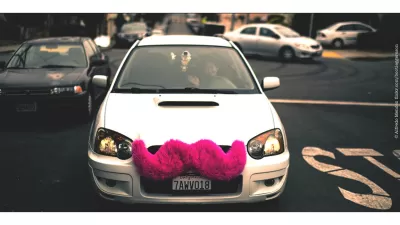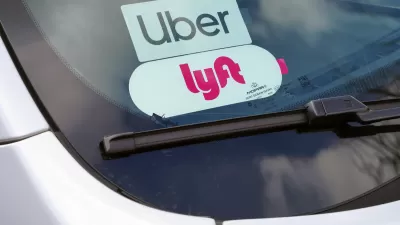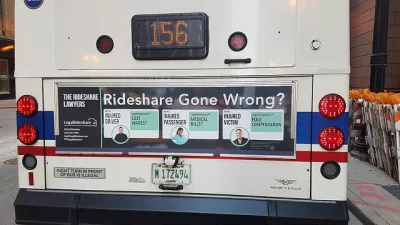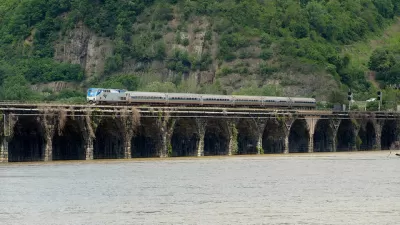In some cities, it can feel like a new era of transportation—with new options like real-time bus arrival data, on-demand cars-for-hire, and more, all available through a smart phone. Which cities are out in front of the new world?

Lindsey Hallock and Jeff Inglis share news of the new "Innovative Transportation Index" [pdf], created by the Frontier Group.
Here's how the index works and some of what it finds: "This report reviews the availability of 11 technology-enabled transportation services – including online ridesourcing, carsharing, ridesharing, taxi hailing, static and real-time transit information, multi-modal apps, and virtual transit ticketing – in 70 U.S. cities. It finds that residents of 19 cities, with a combined population of nearly 28 million people, have access to eight or more of these services, with other cities catching up rapidly."
It's important to note that some of the technologies measured in the index are only available in select cities, while start-ups scale-up technology in cooperation with local governments. RideScout comes to mind. Other of the technologies are currently the source of rampant and ever-evolving controversy about the nature of regulation and the market. Uber comes to mind.
Austin comes out on top of the rankings, followed by San Francisco and Washington, D.C.
 Frontier Group also shares graphics available for sharing and to showcasing the accomplishments of individual cities. That means that images, such as the one to the right, are available, for example, for calling-out cities that aren't as technologically advanced as some local politicians claim. Like cities that completely lack bikeshare, for example.
Frontier Group also shares graphics available for sharing and to showcasing the accomplishments of individual cities. That means that images, such as the one to the right, are available, for example, for calling-out cities that aren't as technologically advanced as some local politicians claim. Like cities that completely lack bikeshare, for example.

Study: Maui’s Plan to Convert Vacation Rentals to Long-Term Housing Could Cause Nearly $1 Billion Economic Loss
The plan would reduce visitor accommodation by 25,% resulting in 1,900 jobs lost.

North Texas Transit Leaders Tout Benefits of TOD for Growing Region
At a summit focused on transit-oriented development, policymakers discussed how North Texas’ expanded light rail system can serve as a tool for economic growth.

Why Should We Subsidize Public Transportation?
Many public transit agencies face financial stress due to rising costs, declining fare revenue, and declining subsidies. Transit advocates must provide a strong business case for increasing public transit funding.

How Community Science Connects People, Parks, and Biodiversity
Community science engages people of all backgrounds in documenting local biodiversity, strengthening connections to nature, and contributing to global efforts like the City Nature Challenge to build a more inclusive and resilient future.

Alabama: Trump Terminates Settlements for Black Communities Harmed By Raw Sewage
Trump deemed the landmark civil rights agreement “illegal DEI and environmental justice policy.”

Dear Tesla Driver: “It’s not You, It’s Him.”
Amidst a booming bumper sticker industry, one writer offers solace to those asking, “Does this car make me look fascist?”
Urban Design for Planners 1: Software Tools
This six-course series explores essential urban design concepts using open source software and equips planners with the tools they need to participate fully in the urban design process.
Planning for Universal Design
Learn the tools for implementing Universal Design in planning regulations.
City of Santa Clarita
Ascent Environmental
Institute for Housing and Urban Development Studies (IHS)
City of Grandview
Harvard GSD Executive Education
Toledo-Lucas County Plan Commissions
Salt Lake City
NYU Wagner Graduate School of Public Service





























